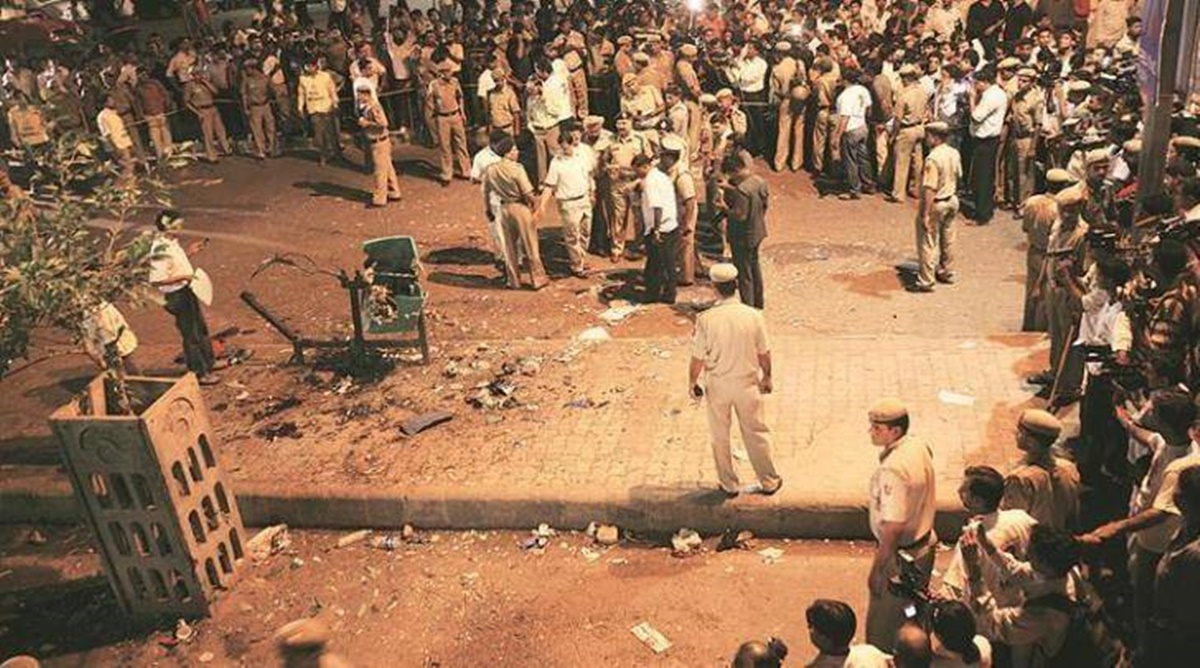 Five serial blasts had ripped through Delhi markets on September 13, 2008. (Express Archive)
Five serial blasts had ripped through Delhi markets on September 13, 2008. (Express Archive) Granting bail to an accused who has spent more than 12 years as an undertrial in the 2008 Delhi serial blast case, the Delhi High Court Wednesday said courts “must not play coroner” and attend to the legal or constitutional rights only after they are “dead”. The court also said that the incarceration of more than 12 years would certainly qualify as a long enough period “for the system to acknowledge that the appellant’s right to speedy trial continues to be defeated”.
“Instead we must play doctor, and save such rights from demise before they are extinguished. Courts should proactively step in to protect such rights from being stifled and buried,” said the division bench of Justice Siddharth Mridul and Justice Anup Jairam Bhambhani, while granting bail to accused Mohd Hakim.
“If equity calls upon affected persons to be vigilant to protect their rights, then surely the courts must also be vigilant and, to quote the Hon’ble Supreme Court, act as sentinels on the qui vive (alert) when it comes to protecting constitutional and legal rights,” it said in the bail order.
Hakim is accused of having carried cycle ball-bearings from Lucknow to Delhi which, according to the police, were subsequently used to make IEDs used in the blasts that occurred in Delhi in 2008. Charges were framed against him in May 2011.
Hakim was represented by senior advocate Nitya Ramakrishnan and advocate Warisha Farasat, who argued that his right to a speedy trial is being violated and he deserves to be released on bail during the pendency of the trial. Police had argued that Hakim was charged with grave and heinous offences in the case in which 26 people died and 135 were injured.
It also argued that the Supreme Court in Zahoor Ahmad Shah Watali judgment has instructed the courts not to enter into the merits or demerits of the evidence in a UAPA case and decline the bail in view of UAPA Section 43-D(5).
The division bench said that though the State has stressed that he has been charged with the offence of criminal conspiracy to wage war against the government of India, it has not pointed out any particular allegation in the chargesheet or order framing charge that could relate to the offences under Sections 121 or 121A IPC.
To answer the question of ‘how long is too long a period of incarceration as an undertrial’, the court said it looked into the summary of decisions of the Supreme Court and other High Courts and found that undertrials have been granted bail even in cases where the offences were punishable with death and even with the period of incarceration undergone was as little as 66 days.
Stating that Hakim has spent more than 12 years in custody as an undertrial, 256 witnesses have been examined over the last 12 years, and 60 prosecution witnesses remain to be examined, the court also noted in the order that Hakim was pursuing a B.Tech (Biotechnology) degree course from Integral University, Lucknow, Uttar Pradesh when he is alleged to have committed the offence.
“In the event of acquittal, how would the State compensate the appellant for having been robbed of what may have been the most productive and defining decade of his life?” it asked.
The court further said that if the State plans to seek the death sentence for Hakim, it is all the more necessary for him to be afforded a speedy trial. “Failing which, the appellant deserves at least to be given back his liberty after more than 12 long years of imprisonment as an undertrial, since it cannot be ignored that as of now, the appellant has undergone punishment for more than a decade of his life for an alleged offence for which he has not yet been found guilty,” the order reads.
- The Indian Express website has been rated GREEN for its credibility and trustworthiness by Newsguard, a global service that rates news sources for their journalistic standards.

